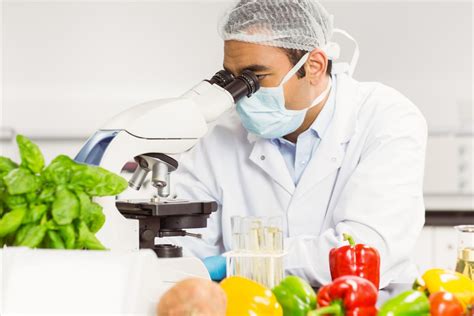As the world's population continues to grow, the demand for safe, nutritious, and sustainable food products has never been more pressing. Food scientists and technologists play a vital role in meeting this demand, applying their knowledge of chemistry, biology, and physics to develop innovative solutions that improve the quality and availability of food. In this comprehensive career guide, we will explore the exciting field of food science and technology, highlighting the key skills, qualifications, and career paths that can lead to success in this dynamic and rewarding profession.
Key Points
- Food scientists and technologists apply scientific principles to develop safe, nutritious, and sustainable food products.
- A bachelor's degree in food science, food technology, or a related field is typically required for entry-level positions.
- Key skills include analytical and problem-solving abilities, communication and collaboration, and knowledge of food safety regulations and quality control systems.
- Career paths include research and development, quality control, food safety, and regulatory affairs, with opportunities in industry, government, and academia.
- Professional certifications, such as the Certified Food Scientist (CFS) credential, can demonstrate expertise and enhance career prospects.
What is Food Science and Technology?

Food science and technology is an interdisciplinary field that combines principles from chemistry, biology, physics, and engineering to understand the composition, processing, and preservation of food. Food scientists and technologists apply this knowledge to develop new food products, improve existing ones, and ensure the safety and quality of the food supply. This involves a deep understanding of the chemical, physical, and biological properties of food, as well as the impact of processing, storage, and handling on food quality and safety.
Subdisciplines of Food Science and Technology
Within the field of food science and technology, there are several subdisciplines that focus on specific aspects of food production, processing, and consumption. These include:
- Food chemistry: the study of the chemical composition and properties of food
- Food microbiology: the study of the microorganisms that affect food safety and quality
- Food engineering: the application of engineering principles to food processing and manufacturing
- Food safety: the study of the hazards and risks associated with food production, processing, and consumption
| Subdiscipline | Description |
|---|---|
| Food Chemistry | The study of the chemical composition and properties of food |
| Food Microbiology | The study of the microorganisms that affect food safety and quality |
| Food Engineering | The application of engineering principles to food processing and manufacturing |
| Food Safety | The study of the hazards and risks associated with food production, processing, and consumption |

Career Paths in Food Science and Technology

Career paths in food science and technology are diverse and exciting, with opportunities in industry, government, and academia. Some of the most common career paths include:
- Research and development: developing new food products and processes, and improving existing ones
- Quality control: ensuring the safety and quality of food products through testing and inspection
- Food safety: identifying and mitigating hazards and risks associated with food production, processing, and consumption
- Regulatory affairs: working with government agencies and industry stakeholders to develop and implement food safety regulations and policies
Education and Training
A bachelor’s degree in food science, food technology, or a related field is typically required for entry-level positions in food science and technology. Coursework should include classes in chemistry, biology, physics, and mathematics, as well as specialized courses in food science and technology. Many food scientists and technologists also pursue advanced degrees, such as master’s or Ph.D.s, to advance their careers or pursue specialized research interests.
Professional Certifications and Continuing Education
Professional certifications, such as the Certified Food Scientist (CFS) credential, can demonstrate expertise and enhance career prospects. The CFS credential is offered by the International Association for Food Protection (IAFP) and requires a bachelor’s degree in food science or a related field, as well as passing a comprehensive exam. Continuing education is also essential in food science and technology, as the field is constantly evolving with new technologies, regulations, and consumer trends.
What is the average salary for a food scientist or technologist?
+The average salary for a food scientist or technologist varies depending on factors such as location, industry, and level of experience. According to the Bureau of Labor Statistics, the median annual salary for food scientists and technologists was $65,840 in May 2020.
What are the most important skills for a food scientist or technologist to have?
+The most important skills for a food scientist or technologist to have include analytical and problem-solving abilities, communication and collaboration, and knowledge of food safety regulations and quality control systems. Strong critical thinking and problem-solving skills are also essential, as well as the ability to work effectively in a team environment.
What are the job prospects for food scientists and technologists?
+The job prospects for food scientists and technologists are excellent, with the Bureau of Labor Statistics predicting a 5% growth in employment opportunities from 2020 to 2030. This growth is driven by the increasing demand for safe and sustainable food, as well as the need for innovative solutions to food production and processing challenges.
In conclusion, a career in food science and technology offers a rewarding and challenging path for those who are passionate about food and science. With a strong foundation in chemistry, biology, and physics, as well as specialized knowledge of food science and technology, food scientists and technologists can pursue a wide range of career paths, from research and development to quality control and regulatory affairs. Whether you are just starting your career or looking to advance your current role, the field of food science and technology has something to offer.



